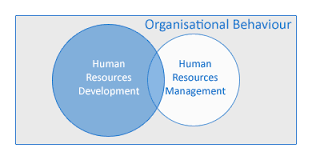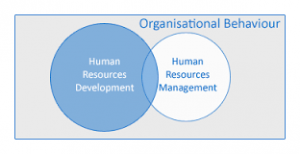HRM stands for human resource management and Gary Dessler has defined it as, “Human Resource Management is the process of acquiring, training, appraising, and compensating employees, and attending to their labour relations, health, safety and fairness concerns.”
As human resource management usually applies to big companies and organisations, it has sub categories among which is HRD which stands for human resource development. This component of HRM focuses on “nurturing employees’ skills.”
The difference between the two can be understood as follows:
1. HRD focuses on the training and the skill set of the individual, as well as optimising work performance. HRM on the other hand focuses on the main functions of management namely recruitment, selection, remediation to employees who need discipline and retooling to continue their employment.
2. HRD is more proactive, it copes with the changing needs of the people as well as anticipate those needs; whereas HRM is a function coping with changes in the organisation as a whole.
3. HRD is a subsystem of a large system, more organisational oriented and HRM is a function more independent with separate roles to play.
4. HRD is concerned only with people, HRM is developing the whole organisation.
5. HRM is a continous function; HRD is a rountine and administrative function.
6. HRD is the involvement of the entire work force from top to bottom and HRM is basically the responsibility of the HR department.
Although there are differences between the two, one cannot function without the help of the other.
Click here for government certification in Human Resources





27 Comments. Leave new
Well written..
Thanks padma.
Nice one…!
Thanks ambika.
good comparison.
Thanks abhishek.
well done!!!!!
Thanks soham
well done!!!!!nicely done
Good one. Very well u have explained the relation between the two.
Thank you juhi
There’s a thin line between the two that you touched very nicely.
Thanks for the appreciation
well written!
Thanks!
Well explained article
Thankyou
Good!!
Thanks!
Well explained
Thanks!
Very conceptual…gud one
really informative!
well explained
The Analysis was much nicely done 😀
GOod work 😀
very well framed and researched !
the definition by ‘Gary Dessler’ is very accurate !
the analysis is done very well 😀
Very well explained.